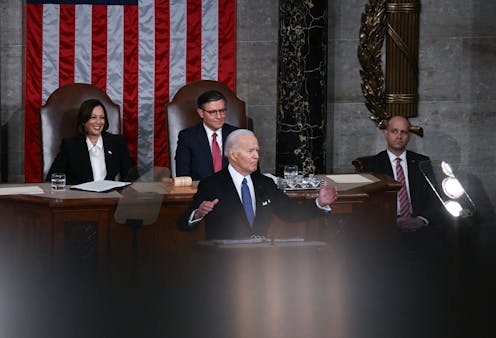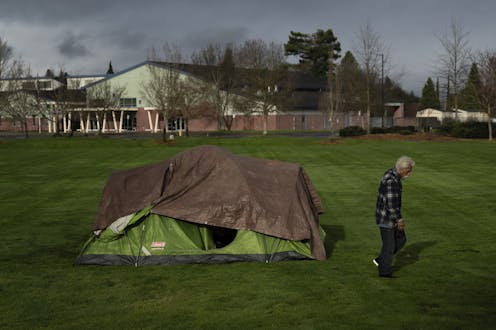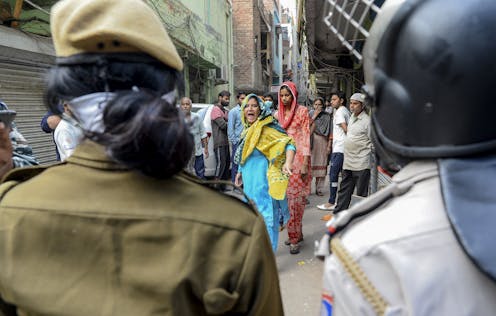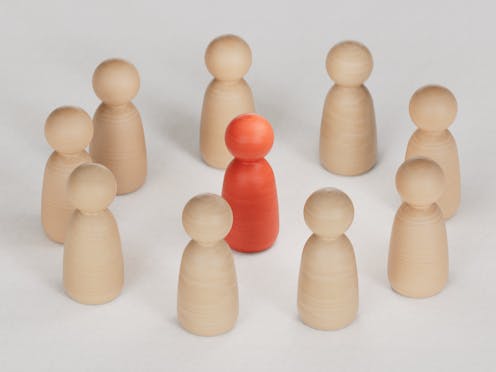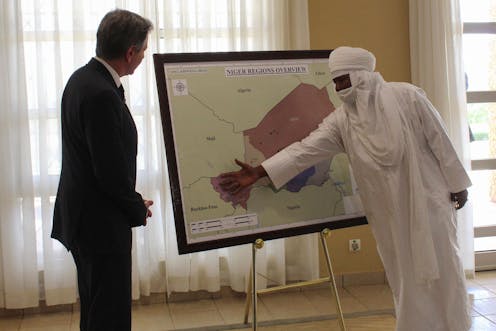We’re all going on a summer holiday – well, some of us ...
 A key feature of casual employment is the lack of leave entitlements – including holiday pay.Craig Sunter (Thanx a Million !), CC BY-SA
A key feature of casual employment is the lack of leave entitlements – including holiday pay.Craig Sunter (Thanx a Million !), CC BY-SAThe idea of the “summer break” is part of the Australian psyche. But as you hurtle towards the holidays, with the thought of a well-earned rest sustaining you through the frenzy of end-of-year deadlines and social commitments, spare a thought for those for whom this is no more a possibility than beating Bradman’s test average.
For a large part of the Australian workforce a long summer holiday spent reading books or lying on the beach is a myth. These are the workers in employment variously described as “insecure”, “contingent”, “precarious” or “vulnerable”, who make up an increasing proportion of the labour market.
Official statistics show that 2.3 million (24%) of employees are engaged on a casual basis, and a key feature of casual employment is the lack of leave entitlements – including holiday pay.
Notionally, the loading paid to casual workers on top of their hourly rate is meant to compensate for this, and there can be obvious upsides to the flexibility afforded by non-permanent work.
But other aspects of casual work compound the lack of entitlements and contribute to the precarious nature of this form of work. These include limited discretion over working hours, resulting in variable pay, few opportunities to voice concerns in the workplace and, of course, the lack of security when your contract can be terminated without notice.
But it’s not just casuals for whom there may be little Christmas joy. A wider definition of workers who are engaged on a “precarious basis” produces a pool of people that far outnumbers those classified as being in casual employment.
It has been estimated that 40% of the workforce now falls under that broader definition of “precarity”. In addition to casual workers, this includes contingent or insecure workers engaged in independent or dependent contracting, people employed by labour hire companies and those on fixed-term contracts.
Precarious work has been commonly associated with low-status, low-skilled jobs, and this is supported by statistics showing a high incidence in hospitality, agriculture and retail services. But these days the phenomenon extends to almost every field of employment, and to highly qualified workers.
Take the example of the tertiary education sector. According to recent studies, tertiary education boasts one of highest rates of casual employment, approaching 50%. The Department of Education’s statistics produce a lower figure but it has been criticised for reporting the incidence of casualisation in terms of full-time equivalence – highlighting one of the problems in getting to grips with the extent of precarious work generally.
In its submission to the ACTU’s 2012 inquiry into insecure work, the National Tertiary Education Union (NTEU) estimated that between 1996 and 2011 the number of casual university employees increased by 81%. It noted that casual employment in tertiary education was often characterised by staff being employed on a semester-by-semester or seasonal basis.
This means a long break of no paid employment from the end of second semester to the start of first semester the following year, a period that can last from mid-November until the beginning of March.
What this may mean for casual academics or those employed on a series of short, fixed-term contracts is summed up by the experience of Sarah Attfield, who has remained a casual academic at UTS since 2007, despite being awarded her PhD in 2008 and being “research active” in her own time.
To sustain herself over the summer non-teaching period, Attfield tries to secure work as a research assistant and since the beginning of 2012 has been teaching Open University classes.
“It keeps an income coming in over the summer, but it also means I teach almost 52 weeks a year,” she told me in an interview. She nevertheless considers herself among the more fortunate:
I suppose I’m lucky because I get a lot of work during the semester and the income from OUA (Open Universities Australia) means I’m OK. But I know other casual tutors who have to go back to Centrelink between semesters, or who move back in with parents to save rent.
The impact of precarious work – in higher education or elsewhere – is felt not just by the individual but also by their social networks and families. Gaps in income may mean Christmas and other holiday rituals are not very jolly. Other people feel compelled to “work through” while friends and family celebrate summer and the Christmas season without them.
If this trend towards precarious work persists, it’s possible that one day the majority of Australia’s workforce will fall outside traditional employment structures, with no access to the summer rituals of days gone by. Then the coveted “summer break” might be at risk more generally.
This article is part of The Conversation’s End of Year series.
Sarah Kaine is a member of the NTEU UTS Branch Committee.
Read more http://theconversation.com/were-all-going-on-a-summer-holiday-well-some-of-us-34075





